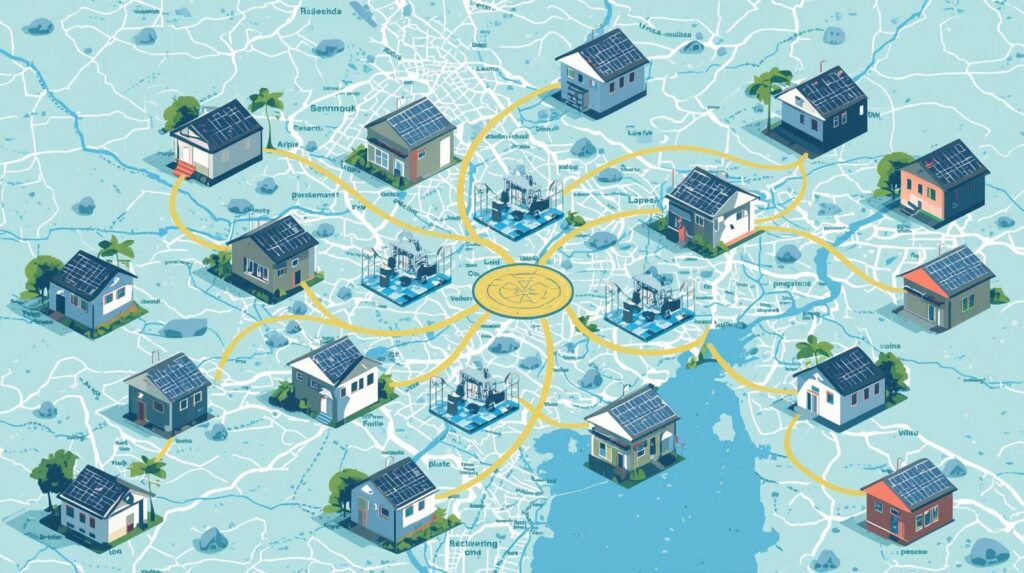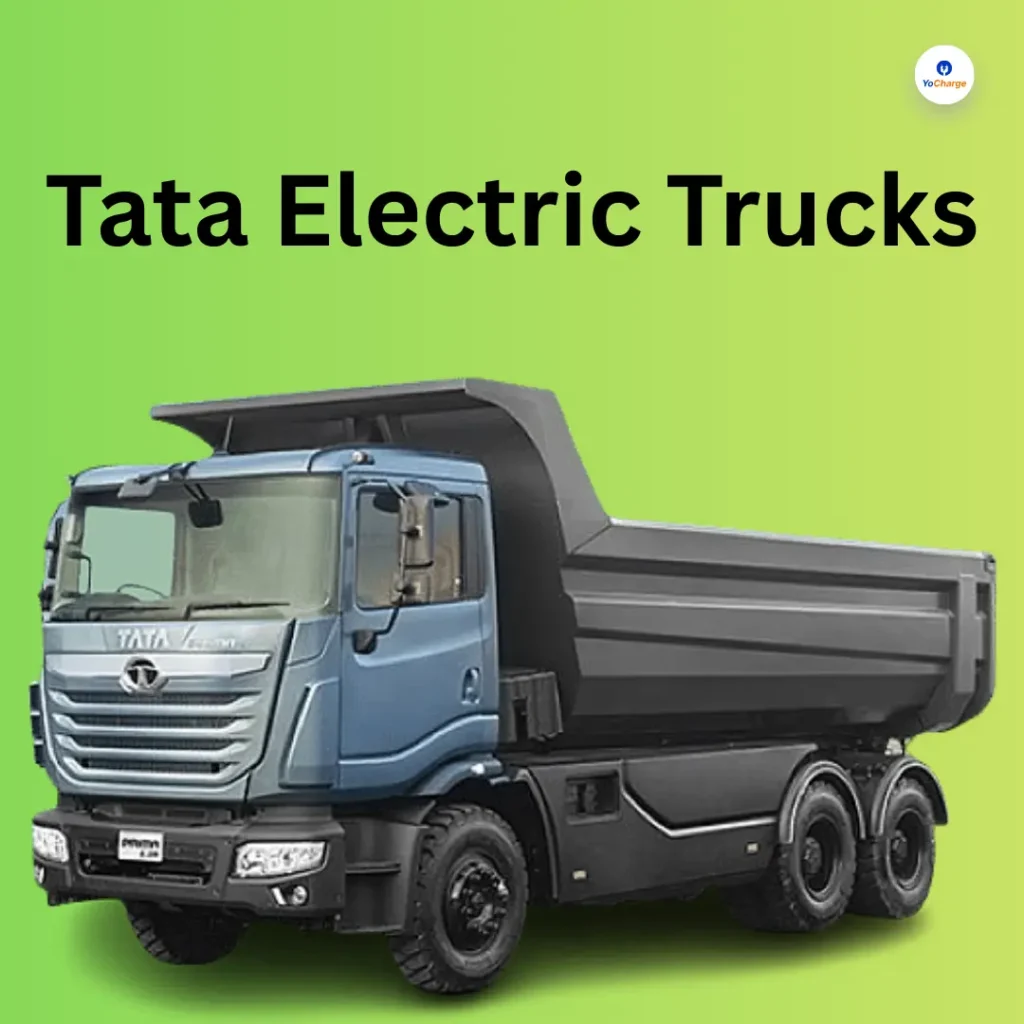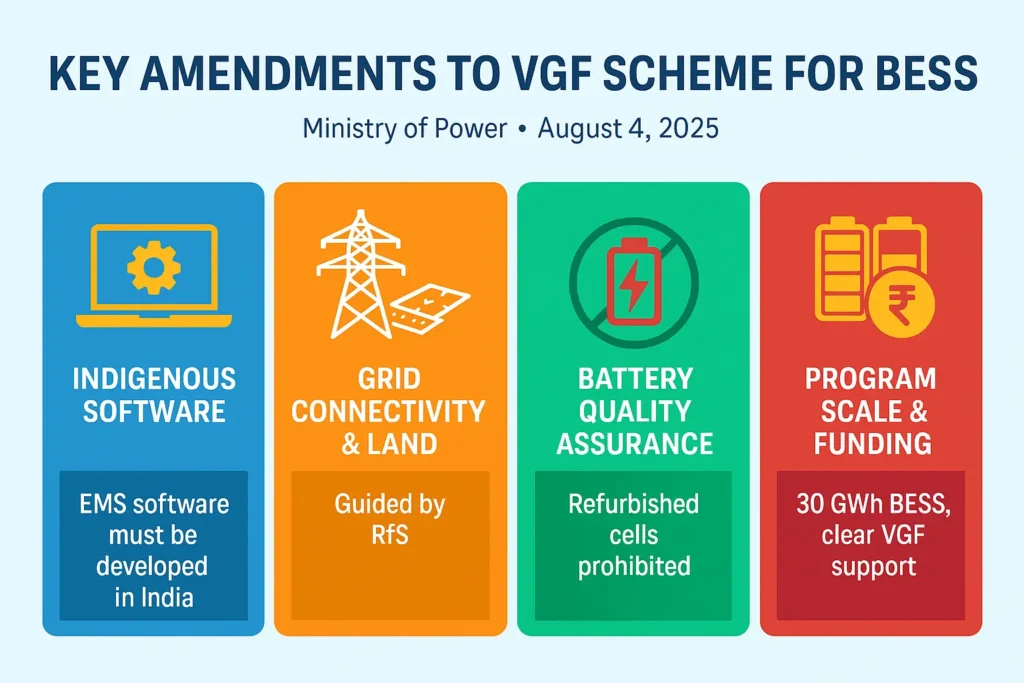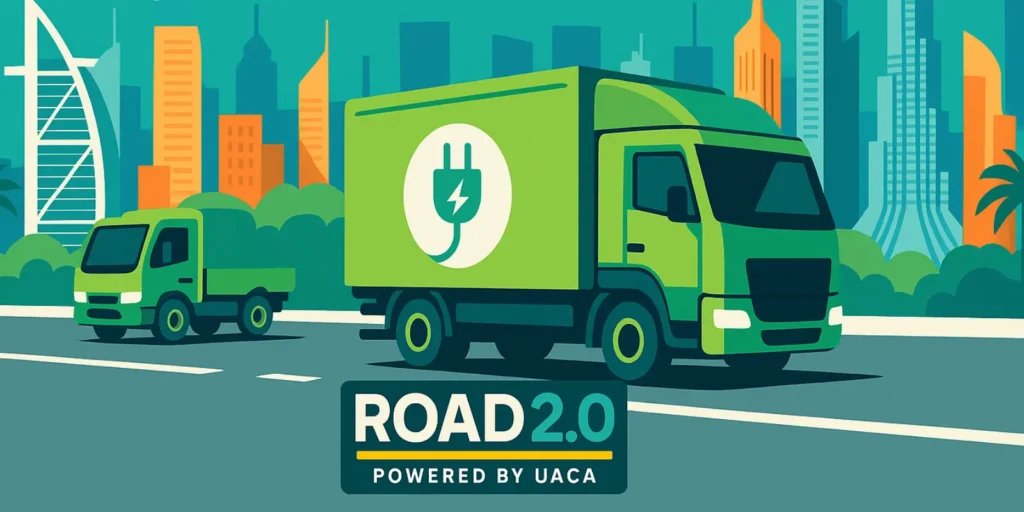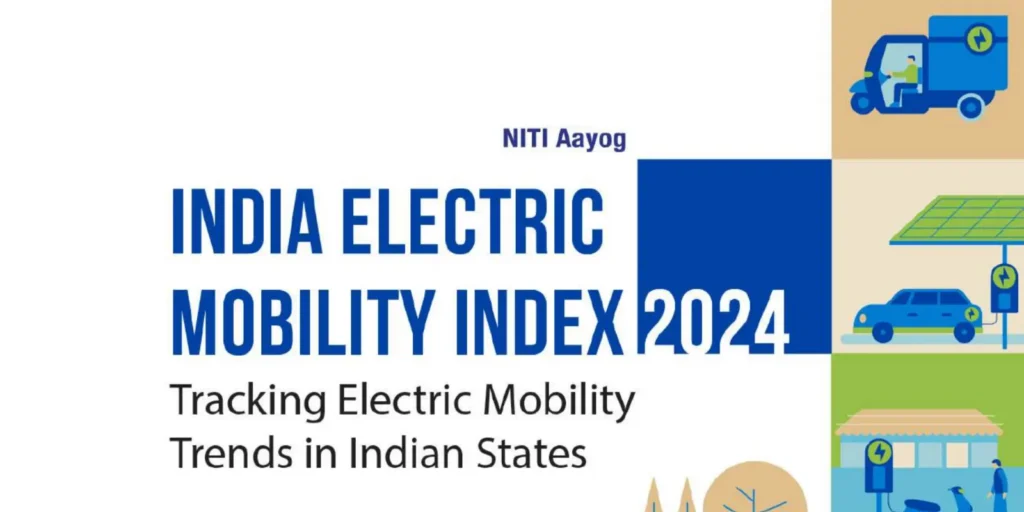
The India Electric Mobility Index 2024, jointly released by NITI Aayog and WRI India, offers an in-depth view of the current state and future direction of India’s electric mobility ecosystem. The report benchmarks the 28 states & 8 union territories of India based on their EV readiness, policy implementation, and infrastructure development. This pioneering initiative tracks the rapid transformation of India’s transport sector, which has seen electric vehicle adoption grow from 0.5% of total vehicle sales in 2018 to 7.7% in 2024.
The report sends a clear signal: India’s electric mobility transformation is irreversible. States leading in policy, infrastructure, and demand-side incentives are reaping the benefits early. However, scaling EV charging infrastructure, grid readiness, and digital services will be pivotal to unlock the next phase of growth.
What is India Electric Mobility Index 2024
The India Electric Mobility Index 2024 is a performance dashboard and ranking system to accelerate, benchmark, and guide India’s EV and clean mobility journey at the state level.
By evaluating the progress of electric mobility across states and union territories, the IEMI captures the richness of state-level strategies and the strength of regional ambition. It serves as a valuable tool for policymakers, providing insights that can inform targeted action and drive collaborative progress.
Developed by NITI Aayog in partnership with WRI India, the India Electric Mobility Index 2024 (IEMI 2024) is grounded in the core principles of comprehensiveness, data-driven assessment, actionability, inclusivity and transparency. It will enable states to benchmark their progress, inform public fund allocation to promote clean mobility and foster peer learning. Additionally, it will guide the private sector by highlighting state performance and growth potential.
Scoring in India Electric Mobility Index 2024
In the India Electric Mobility Index 2024, the states and UTs are evaluated at three levels—the IEMI, theme and indicator scores— assessed on a 0-100 scale.
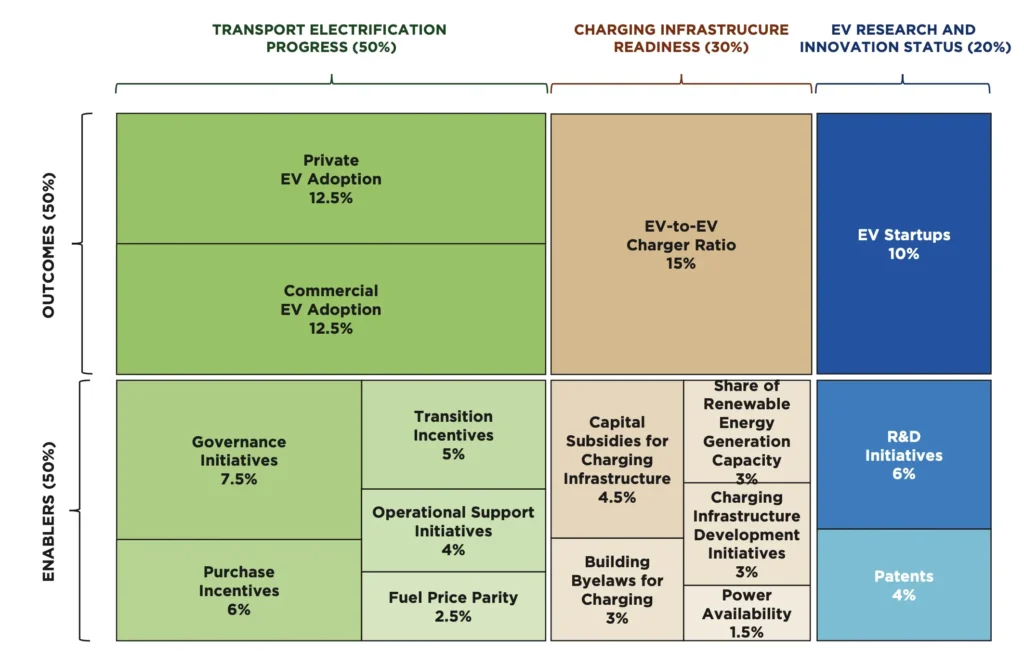
Market Growth Highlights
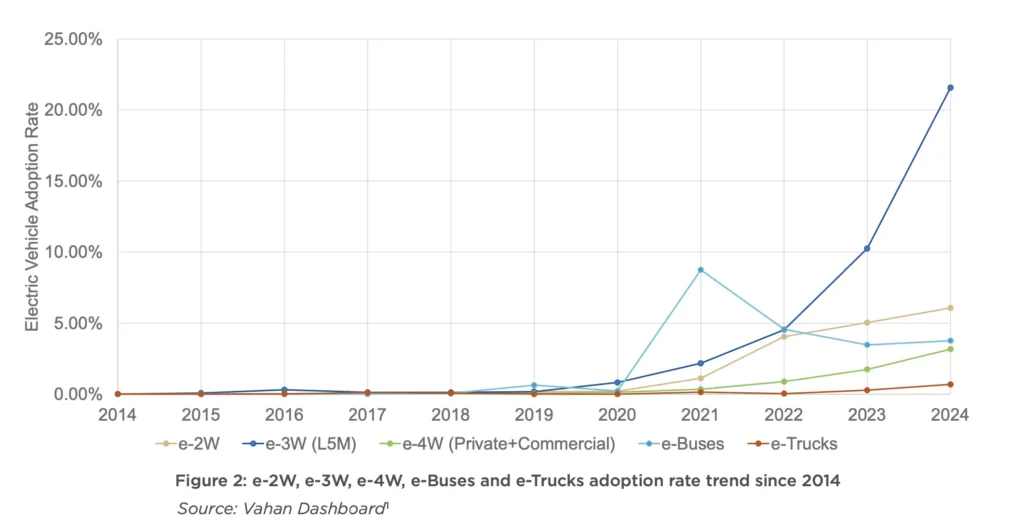
- 6.5+ million EVs operating on Indian roads as of June 2025
- 2.03 million EV units sold in 2024 alone (27% year-on-year growth)
- Two-wheelers dominate with 59% of total EV sales
- 25,000 public EV charging stations operational as of October 2024
Key Performance Rankings
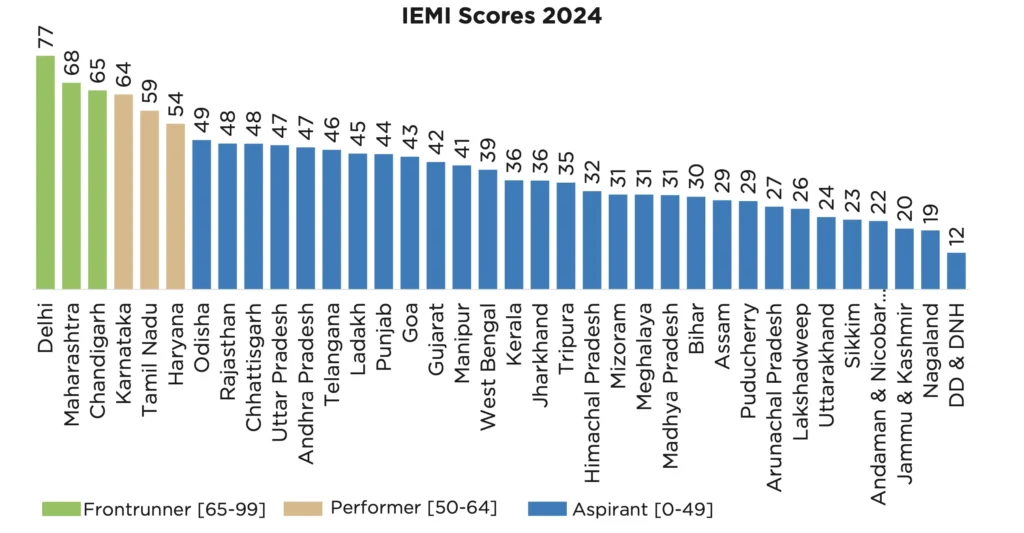
Top Performers (Frontrunners)
- Delhi – IEMI Score: 77
- Maharashtra – IEMI Score: 68
- Chandigarh – IEMI Score: 65
Strong Performers
- Karnataka (64),
- Tamil Nadu (59),
- Haryana (54)
Emerging Markets (Aspirants)
- States scoring below 50, including Odisha, Rajasthan, Chhattisgarh, and others, representing significant growth opportunities
Framework and Assessment
The India Electric Mobility Index 2024 evaluates states across three core themes:
1. Transport Electrification Progress (50% weightage)
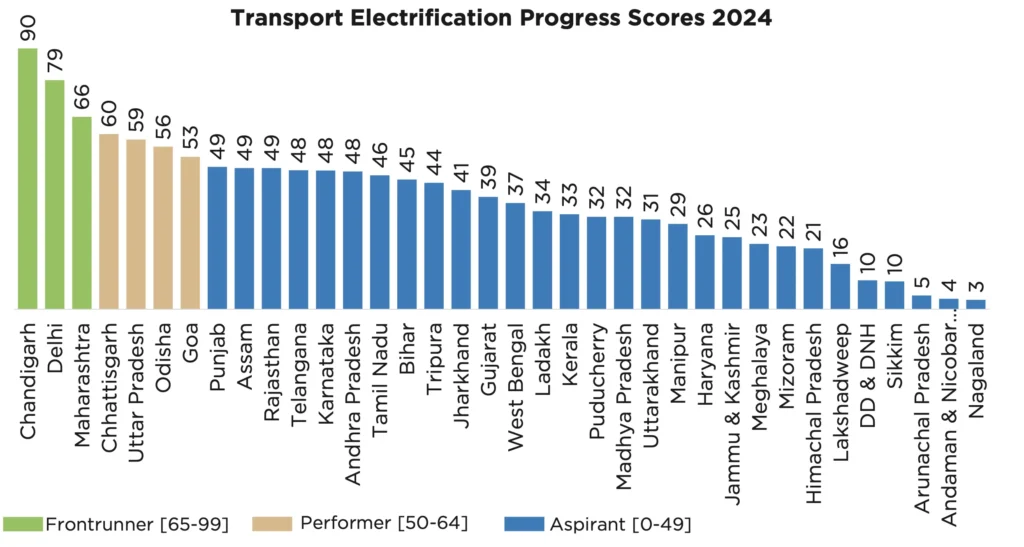
- Leading States: Chandigarh (90), Delhi (79), Maharashtra (66)
- Measures EV adoption rates, governance initiatives, purchase incentives, and operational support
2. Charging Infrastructure Readiness (30% weightage)
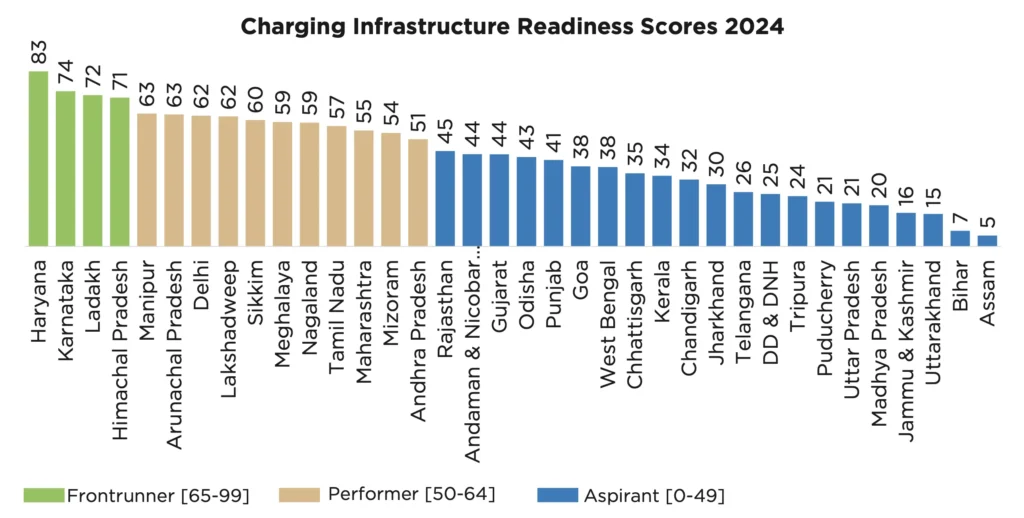
- Leading States: Haryana (83), Karnataka (74), Ladakh (72)
- Assesses charging station density, infrastructure development initiatives, and renewable energy integration
- As of October 2024, India had 25,000 public EV charging stations, with Karnataka leading in installations, followed by Maharashtra and Delhi.
3. EV Research & Innovation Status (20% weightage)
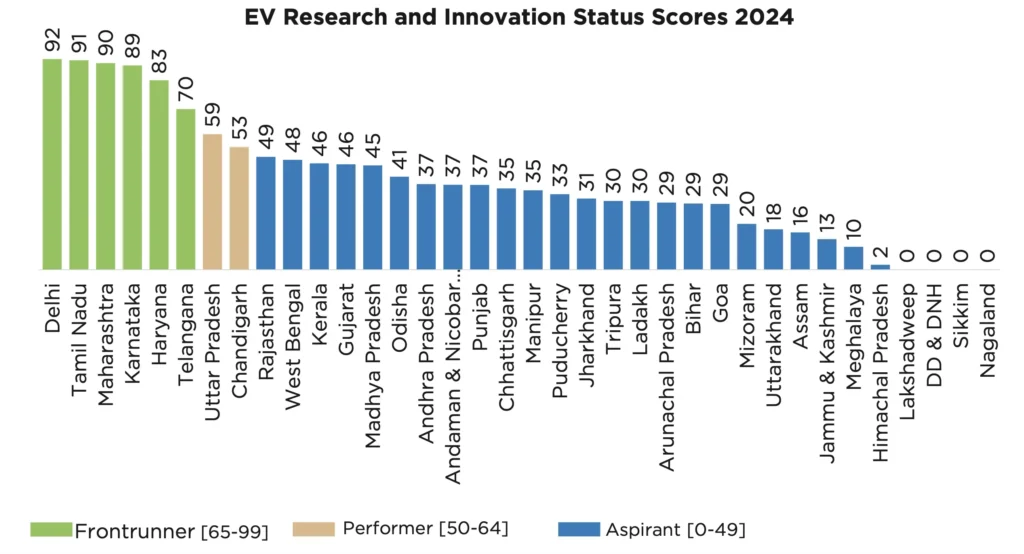
- Leading States: Delhi (92), Tamil Nadu (91), Maharashtra (90)
- Evaluates startup ecosystem, R&D initiatives, and patent activity
Notable State Achievements
Policy Innovation Leaders
- 29 states and UTs have notified EV policies
- Delhi: Leads with 2,500 electric buses (33% of fleet)
- Chandigarh: Highest commercial EV adoption at 65%
- Karnataka: Most public charging stations (5,880)
Adoption Champions
- Goa: Highest private EV adoption rate
- Tripura: Highest overall EV adoption at 15.1%
- Assam: 85% of three-wheelers registered are electric
Manufacturing Hubs
- Maharashtra: Highest number of EV startups (467)
- Tamil Nadu: Strong automotive sector with major EV investments
- Karnataka: ₹25,000 crore in EV value chain investments
Market Opportunity
Economic Impact
- $15-35 billion potential market savings vs. traditional power plants
- 80-160 GW projected VPP capacity by 2030
- 40-60% lower costs than gas peaker plants
- ₹140+ average annual household savings potential
Government Support
- FAME-II scheme and new PM e-DRIVE program
- Production Linked Incentive (PLI) schemes for manufacturing
- State-level incentives including purchase subsidies, tax exemptions, and infrastructure support
Future Outlook
2030 Targets
- 30% EV penetration in new vehicle sales (EV30@30 commitment)
- Continued expansion of charging infrastructure
- Enhanced domestic manufacturing capabilities
Key Growth Drivers
- Declining battery costs
- Expanding charging infrastructure
- Supportive policy environment
- Growing consumer awareness of total cost of ownership benefits
Regional Insights
The index reveals significant regional variations in EV adoption strategies:
- Northern states lead in policy frameworks and governance
- Western states excel in manufacturing and innovation
- Southern states show strong adoption rates and infrastructure development
- Eastern and Northeastern states present substantial growth opportunities
Conclusion
The IEMI 2024 demonstrates India’s accelerating transition toward electric mobility, with strong leadership from progressive states driving national progress. The comprehensive assessment provides a roadmap for states to benchmark performance, learn from best practices, and accelerate their clean mobility transitions.
This initiative positions India as a global leader in subnational electric mobility assessment and supports the country’s broader climate commitments and sustainable development goals.
Read in Detail
At YoCharge, we see this report as both a validation of our mission and a blueprint for growth. Our focus on providing full-stack EV Charging Platforms, smart grid integration, and mobility software for CPOs and fleets is more relevant than ever. Connect with YoCharge
